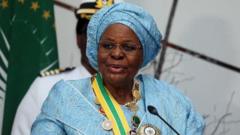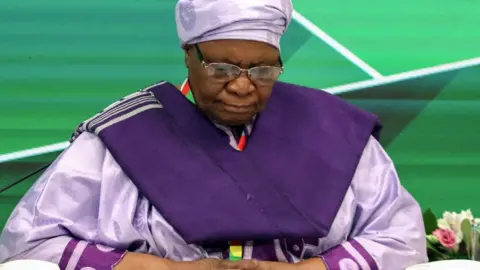In a bold move, Namibia's newly elected president, Netumbo Nandi-Ndaitwah, during her inaugural state of the nation address, has announced the elimination of university fees starting in 2026. As the first female president of the country, Nandi-Ndaitwah aims to make public university and technical college education completely free, thereby easing the financial burdens on families.
The president assured lawmakers that students would not be required to pay any registration or tuition fees at public institutions. However, she acknowledged that the implementation of this initiative would occur gradually, with families and students still responsible for accommodation and ancillary costs. "We have heard your cries: 'the Fees have Fallen'," she remarked, referencing powerful student movements in Namibia and South Africa that have long advocated for affordable education.
Concerns about the plan's feasibility have been voiced, as Nandi-Ndaitwah indicated that there would be no significant increase in funding to support this program. Instead, she mentioned that the financial resources would come from existing governmental subsidies allocated to public universities and the student financial assistance fund.
While some student groups welcomed the announcement, others expressed skepticism, labeling it as a political maneuver lacking a clear plan. The Affirmative Repositioning Student Command (ARSC) criticized the announcement as ambiguous, questioning which student demographics—undergraduates or post-graduates—would receive benefits, and where the funding would derive from.
Economist Tannen Groenewald echoed these concerns, suggesting that without appropriate funding, Namibia might have to limit admission to students based solely on financial need. This scenario mirrors challenges faced by the South African government in 2017 when it attempted to provide free tertiary education, resulting in limited benefits for many students, particularly those from the “missing middle” - individuals deemed too affluent for aid yet unable to afford tuition fees.
As Namibia makes strides towards achieving free higher education, the challenges of funding and implementation raise critical questions about the sustainable impact of such a significant policy change.



















